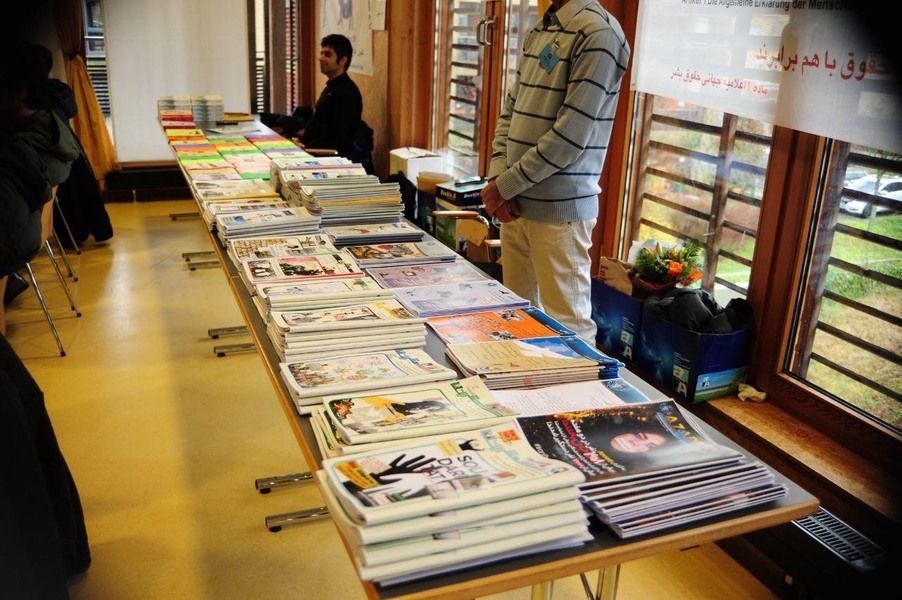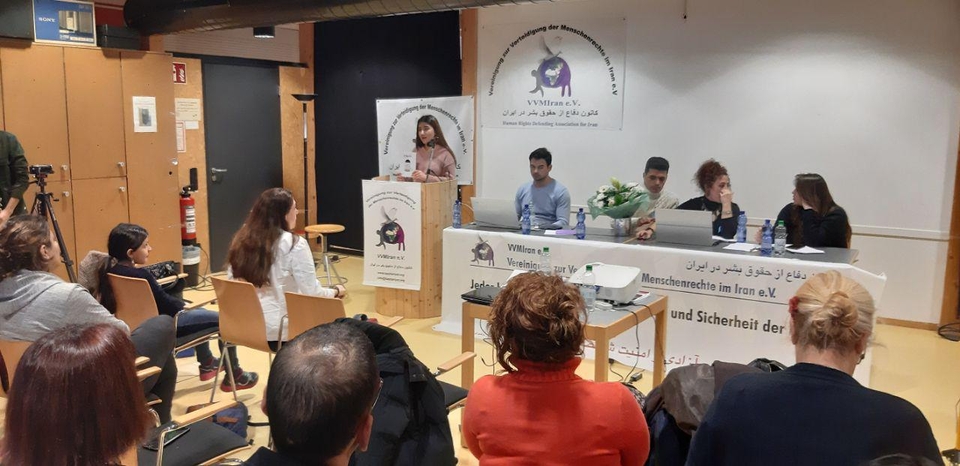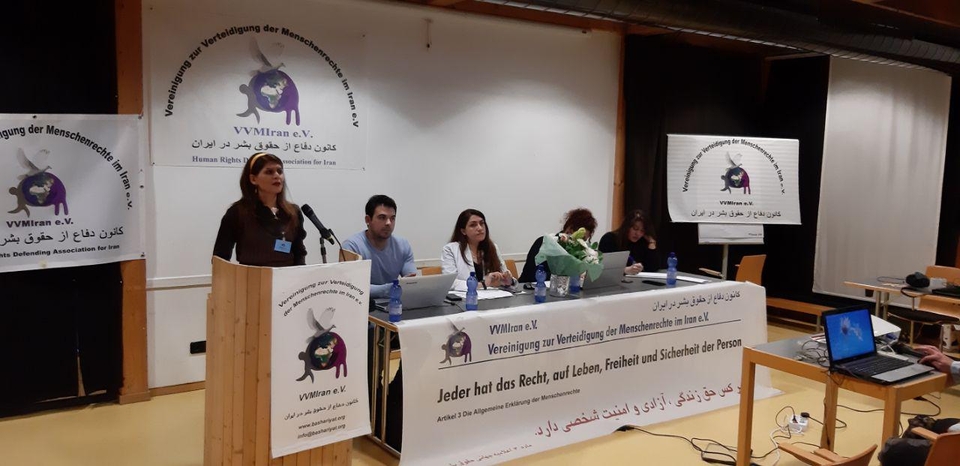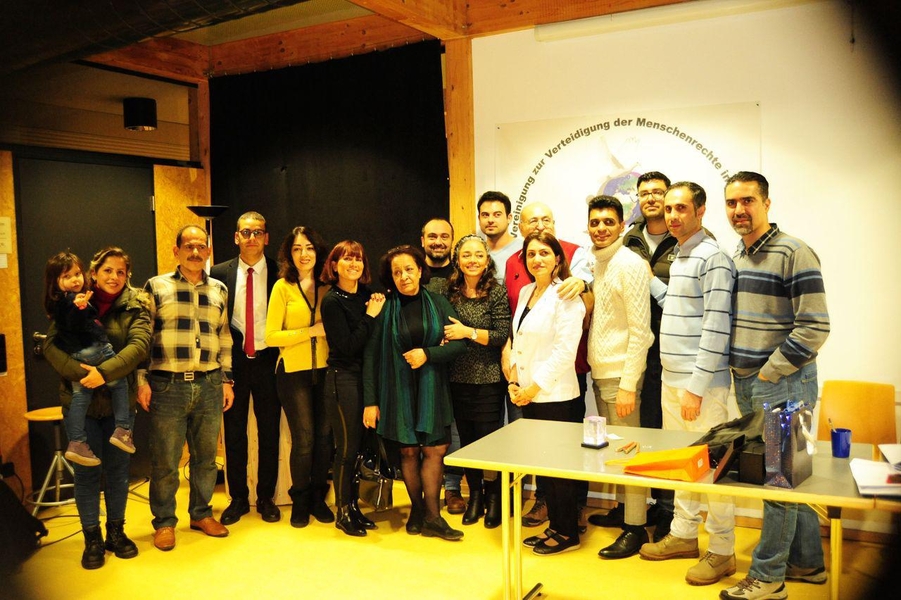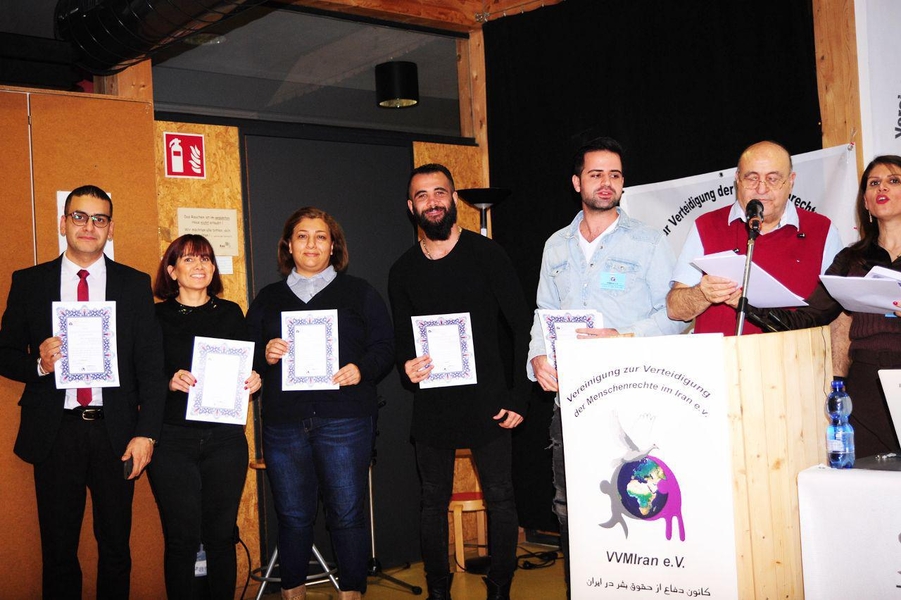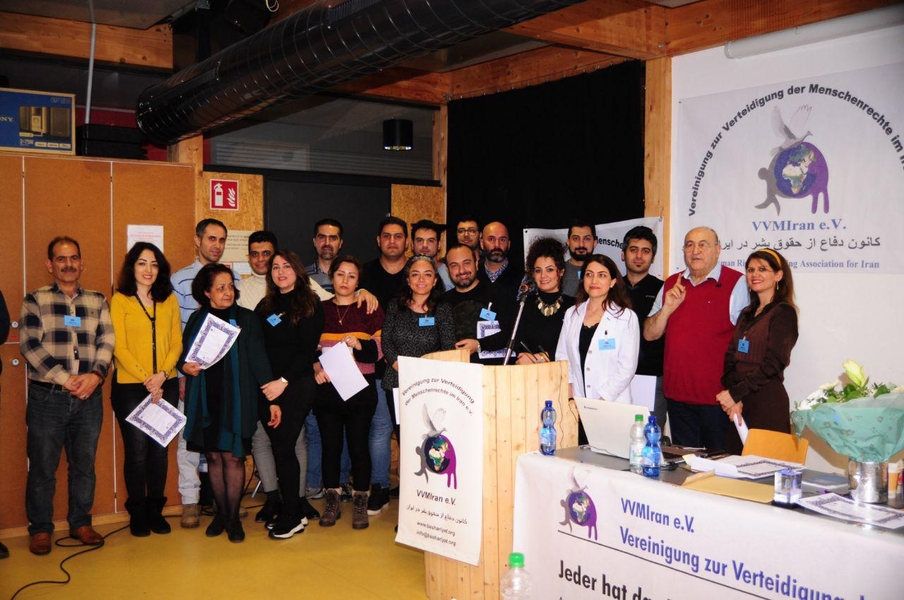Two prominent Iranian human rights defenders have expressed optimism over the recent moves in Iran to amend the laws banning women from sports stadiums, but note that real and permanent changes will require time and sustained citizen support for its realization.
The moves to end the ban follow an international outcry over Iran’s refusal to allow women to attend major sports events, which included statements by the president of FIFA (Fédération Internationale de Football Association) that the ban was “intolerable”. However, statements by the Iranian state officials that the ban would be at least partially lifted have been followed by conflicting statements by other officials claiming the issue has not yet been decided upon, indicating the issue is still making its way through the maze of Iranian domestic politics.
In interviews with the International Campaign for Human Rights in Iran, two prominent Iranian civil society figures–the lawyer Nasrin Sotoudeh and the activist Narges Mohammadi–both noted that movement on the issue has nevertheless clearly taken place and progress made, even if there is still a distance to go before the ban is fully and decisively lifted.
“If we assume that with the international developments, or with the nuclear agreement, the issue of human rights would be resolved automatically, and, for example, the doors to sports stadiums are opened to women, we are wrong,” said Nasrin Sotoudeh. “We must never see the realization of human rights as something that could happen overnight.”
She continued, “Although human rights need certain grounds, the main reasons for the realization of human rights is dependent on the activities of every single citizen in the country. For example, we look at the Lausanne [nuclear] agreement as grounds for realization of human rights, but the agreement alone is not sufficient. Realization of human rights needs the entire nation’s action. No law about the attendance of women in sports stadiums can guarantee its enforcement, unless all Iranian men and women insist on its enforcement.”
Sotoudeh added, “I use the issue of women’s presence in stadiums as testament to my reasoning. Over the past decade, or even longer, women who tried to enter the sports stadiums were arrested and hurt for it, but they kept defending this right. Therefore, I think after this law is passed, women must continue to work for its enforcement.”
Narges Mohammadi, Spokesperson for the (now banned) Defenders of Human Rights Center, told the Campaign, “The different statements of recent days about whether or not women will be able to attend sports stadiums and the denials and confirmations of the news indicates the power struggles among different groups, but I believe that after these struggles, the Plan for Women’s Presence [the legislation regarding allowing women’s attendance at sports stadiums] will be enforced.”
“I don’t think this will include women’s attendance of soccer games, because certain preparations will need to be thought through, but, to be sure, women will be able to attend sports stadiums to watch volleyball matches or other competitions,” Mohammadi added.
The back and forth on the issue reflects the continued political struggle in the country between hardliners set on maintaining ultraconservative social and cultural policies, who are dominant in Parliament as well as in the security, intelligence and judicial branches of government, and those who adhere to more moderate views, which include the Rouhani administration.
Abdolhamid Ahmadi, Iran’s Deputy Minister of Sports and Youth Ministry, told IRNA (the Islamic Republic News Agency) on April 4, 2015, that the “Plan for Attendance of Families and Women in Sports Stadiums was approved by Iran’s National Security Council in March,” adding that the Plan would go into effect this year.
The news received immediate and widespread attention on the Internet, but a few hours later, Babak Dinparast, Head of the Interior Ministry’s Information Center and International Affairs, denied the news and said, “The National Security Council has not approved any [plans] for attendance of women in sports stadiums.”
The next day, Abdolhamid Ahmadi said that the Plan “was written bearing in mind a collection of cultural, social, and Sharia-based considerations,” adding that women will not be able to attend “certain sports where neither the families wish to attend, nor is it possible [for women to] attend…because some of these sports are for men only.”
“Attendance of women and families in sports stadiums during volleyball matches has been confirmed, however, this plan has not reached the point of enforcement and notification [to relevant organizations] yet,” said Iran’s Vice President for Women and Family Affairs, Shahindokht Mowlaverdi, on April 6. According to Ms. Mowlaverdi, “procedures for women’s attendance in sports facilities” have been developed by Iran’s Interior Ministry.
Contrary to Mr. Abdolhamid Ahmadi’s statements, Ms. Mowlaverdi said that a joint committee between the Vice President for Women and Family Affairs and the Ministry of Sports and Youth has been formed at the Interior Ministry, and the committee has forwarded the procedures to the Supreme National Security Council, but that it has not been placed on the Council’s agenda yet.
Ms. Mowlaverdi told Shargh Daily, “There can’t be a blanket order for all sports. Currently, women’s attendance in sports facilities does not include [men’s] swimming, boxing, and soccer, but it does include volleyball, handball, basketball, tennis, etc….After much review, it was concluded that women’s entry into sports facilities does not have any Sharia issues, and the necessary mechanisms for women’s attendance must be provided.”
Over the years, women have repeatedly gathered outside the Azadi Stadium in Tehran, demanding to enter the sports facility to watch sports competitions, but they faced detention threats by agents who demanded they leave the vicinity, and some were arrested. Last year Iranian authorities prevented Iranian women from attending volleyball matches in the stadium. Ghoncheh Ghavami, one of the women demanding to attend a volleyball game between the Iranian and Italian National Volleyball Teams, was arrested on June 25, 2013. After international sports organizations and human rights organizations repeatedly objected to her arrest, she was released after five months in prison, on bail of $35,000, and charges against her were subsequently dropped.
In a letter addressed to FIFA, the Swiss-based organization responsible for administering the World Cup soccer competitions, 190 Iranian activists asked FIFA in February to suspend Iran’s membership in FIFA, in response to the Iranian government’s ban on the presence of Iranian women in soccer stadiums. In reaction to the letter, FIFA Chief Sepp Blatter urged Iran in March to allow women into the stadiums.




